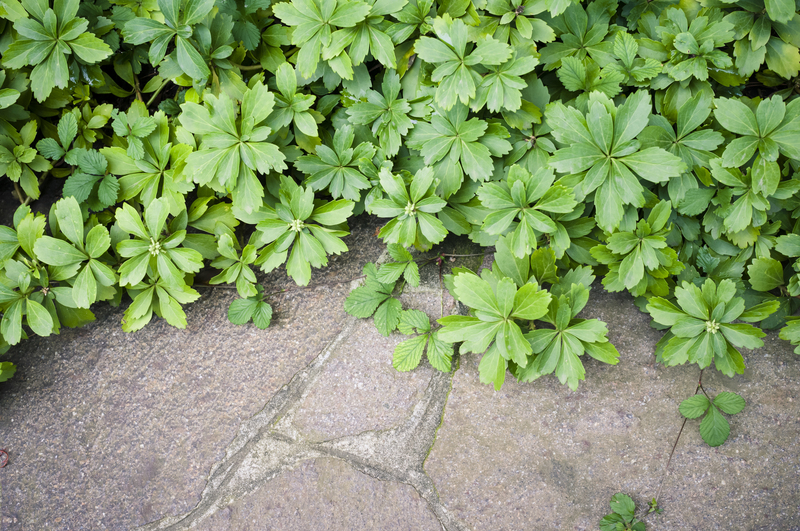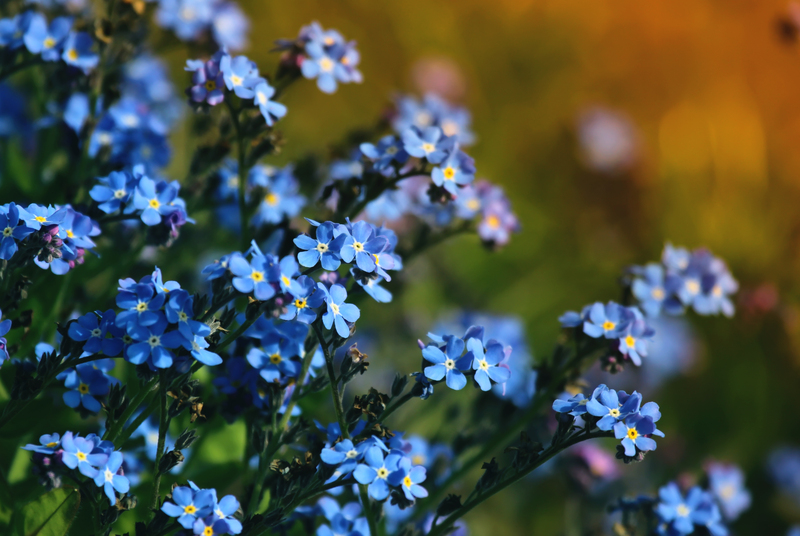Grow Your Own Herbal Paradise
Posted on 14/08/2025
Grow Your Own Herbal Paradise: A Comprehensive Guide
Imagine stepping outside and plucking fresh herbs for your kitchen, teas, and home remedies. Creating your own herbal garden isn't just a delightful hobby--it's an empowering way to nurture wellness, flavor, and fragrance right at your doorstep. In this in-depth article, we'll show you how to grow your own herbal paradise and unlock the countless benefits of a thriving herb garden.
Why Grow Your Own Herbal Paradise?
Herbs are more than just culinary accents. They have been treasured for centuries for their medicinal properties, aromatic qualities, and ornamental beauty. By cultivating an herbal garden at home, you gain access to fresh, organic, and personalized selections while saving money and reducing your ecological footprint.
- Freshness on demand: Harvest what you need, when you need it.
- Versatility: Use herbs for cooking, teas, beauty treatments, and natural medicine.
- Sustainability: Cut down on packaging waste and food miles.
- Well-being: Gardening itself is therapeutic, and herbs boost mental and physical health.
- Aromatherapy: Enjoy scents that soothe, invigorate, or refresh your home environment.

How to Start Your Herbal Dream Garden
Getting started is often the hardest part. With a clear plan, anyone can create a lush herbal retreat--from seasoned horticulturists to absolute beginners.
1. Select the Ideal Location
Most herbs love sunlight and well-draining soil. Consider the following when choosing where to establish your herb haven:
- Sunlight: At least 6 hours of direct sun per day is ideal.
- Convenience: Close proximity to your kitchen makes harvesting effortless.
- Protection: Shelter your herbs from harsh winds and heavy rainfall.
Don't have a garden? Windowsills, balconies, rooftop gardens, and even indoor grow lights can also bring your herbal paradise to life!
2. Choosing the Best Herbs for Your Garden
When planning to grow your own herbs, decide on your goals. Are you after culinary flavor, natural remedies, or fragrant foliage? Here's a list of beginner-friendly and popular herbs that thrive in most home settings:
- Basil - Perfect for Italian dishes and summer salads.
- Mint - Ideal for teas, desserts, and cocktails.
- Rosemary - Robust and aromatic, great for meats and breads.
- Thyme - Versatile, with a subtle flavor for roasts and stews.
- Parsley - Fresh leaf garnish with a vitamin punch.
- Oregano - Mediterranean essence for pizzas and sauces.
- Chives - Onion-like flavor for salads and dips.
- Cilantro - Essential in Latin and Asian cuisines.
- Lemon Balm - Calming in teas and potpourri.
- Lavender - Sweet scent for desserts and natural sachets.
3. Container Gardening: The Flexible Way to Grow Herbs
No backyard? No problem! Container gardening is perfect for apartment dwellers and those with limited space. You can even bring the herbal paradise indoors when winter arrives.
- Choose suitable pots: At least 6-8 inches deep, with drainage holes.
- High-quality potting mix: Look for soil that drains well and stays fluffy.
- Group compatible herbs: Pair herbs with similar growing requirements, like rosemary and thyme, together.
Building Healthy Soil for Your Herb Garden
Great soil is the foundation of any paradise garden. Herbs aren't very demanding, but they do best with soil that's well-drained and moderately rich in nutrients.
Soil Preparation Tips
- Loosen the soil: Break up soil to a depth of 8-10 inches to encourage root growth.
- Compost: Add organic compost for gentle feeding and moisture retention.
- Test pH: Most herbs prefer a neutral to slightly alkaline soil (pH 6.0-7.5).
- Good drainage: Avoid wet, soggy soil that can cause root rot.
Planting and Propagating Your Herbal Paradise
From Seeds or Seedlings?
Both methods can yield a vibrant herb paradise. Seeds give you more variety and economical options, while seedlings offer a head start.
- Sow seeds indoors: Start 6-8 weeks before last frost. Use seed trays to control warmth and moisture.
- Direct sow outdoors: Plant seeds after danger of frost, following packet instructions.
- Transplant seedlings: Harden off young plants before moving them to the garden or containers.
For certain herbs like mint, oregano, or rosemary, take cuttings from mature plants and root them in water or moist soil for effortless propagation.
Caring for Your Herbal Garden
Watering Essentials
Most herbs dislike 'wet feet.' Water deeply but infrequently, allowing the soil to dry out between waterings. Morning is the best time to water, reducing evaporation and preventing disease.
- Check the soil: Stick your finger in. If dry 2 inches down, it's time to water.
- Mulch lightly: A thin layer of mulch helps soil stay cool and damp.
- Avoid overhead watering: Wet foliage can cause diseases such as mildew.
Feeding and Maintenance
- Fertilize sparingly: Too much fertilizer weakens flavor and aroma. Use an organic, diluted feed monthly in spring and summer.
- Pruning: Regular pinching encourages bushy growth and more leaves. Remove flowering stems if you want more leaves.
- Pest and disease watch: Herbs are generally robust, but keep an eye for aphids, slugs, or mildew. Remove affected parts or rinse lightly with a gentle, soapy water spray.
Harvesting and Enjoying Your Own Herbal Getaway
How and When to Harvest
- Morning magic: Pick herbs after dew dries but before the day's heat for the best flavor.
- Snip, don't strip: Use sharp scissors to harvest, leaving enough foliage for regrowth.
- Frequent harvesting: Regular picking encourages more growth--use liberally!
Creative Ways to Use Your Homegrown Herbs
- Culinary delights: Fresh pesto, herb sauces, and flavored oils elevate any meal.
- Herbal teas: Steep mint, chamomile, or lemon balm for soothing drinks.
- Aromatherapy: Hang bundles to dry for potpourri or sachets.
- Natural remedies: Infuse herbs into balms, tinctures, or bath soaks for wellness routines.
Maintaining Your Herb Garden All Year Round
Overwintering and Indoor Growing
As seasons change, so do your herbal gardening strategies. Protect perennials and tender annuals from frost:
- Move pots indoors: Use sunny windowsills or grow lights for winter herbs.
- Mulch outdoor beds: Use straw or leaves to insulate roots during cold spells.
- Grow microgreens: Basil, cilantro, and dill grow quickly indoors for quick harvests.
Year-round harvesting lets you enjoy your herbal paradise even in the heart of winter!
Designing and Expanding Your Herbal Sanctuary
Creative Garden Designs
Your herbal paradise can be more than just practical--aesthetics matter too! Try these ideas:
- Knot gardens: Classic, geometrical herb beds with intricate patterns.
- Vertical gardens: Use wall planters or hanging pots to save space.
- Herb spirals: A permaculture design that maximizes variety on a small footprint.
- Companion planting: Mix herbs among vegetables to boost growth and repel pests.
- Themed beds: Culinary, medicinal, aromatic, or pollinator-friendly combinations.
Expanding Your Collection
Once you master the basics, experiment with rare, exotic, or unusual herbs like Thai basil, pineapple sage, or stevia. Join local gardening clubs or community herb swaps to discover new varieties and exchange tips.
Sustainability Tips for Your Herbal Paradise
- Compost kitchen scraps: Turn herb trimmings and vegetable peels into garden gold.
- Rain barrels: Collect and reuse rainwater for eco-friendly irrigation.
- Organic methods: Avoid synthetic pesticides. Use companion planting and natural predators instead.
- Save seeds: Gather seeds at the end of the season to replant or share.
By gardening sustainably, you ensure your herbal oasis flourishes for years to come.

Common Questions About Growing a Herbal Paradise
Why are my herbs wilting?
Likely causes include overwatering, underwatering, or poor drainage. Feel the soil and adjust watering accordingly.
Can I grow herbs indoors all year?
Yes! Many herbs thrive on a sunny windowsill or under artificial lights. Mint, chives, and basil are especially well-suited for indoor cultivation.
How do I keep pests away naturally?
Use companion planting (such as marigolds near herbs), neem oil sprays, or introduce ladybugs and lacewings to eliminate aphids. Avoid harsh chemicals for a truly organic herbal space.
What's the best way to preserve excess herbs?
Drying, freezing, or infusing in oils and vinegars are traditional ways to preserve herbs and their flavors.
Create Your Herbal Paradise Today
Building your own herbal retreat is a beautiful journey. Whether you have a sprawling backyard or a small sunny shelf, growing your own herbal paradise delivers ongoing joy, health benefits, and culinary inspiration. Start now, and let your green sanctuary flourish!
Share your herbal gardening tips and photos with us--let's inspire more people to cultivate their very own herbal paradise!
Ready to Start Your Own Herbal Paradise?
- Choose your herbs and gather your supplies today.
- Plan your layout for maximum light and convenience.
- Get planting and watch your herbal oasis thrive!
With each sprig and scented leaf, you'll discover the true magic of growing your own herbal paradise.
Latest Posts
Snow-Ready Gardens: Expert Tips for Plant Winter Protection
Strengthening Your Garden's Defense Against Weather
Reimagining Nature through Vertical Gardening

